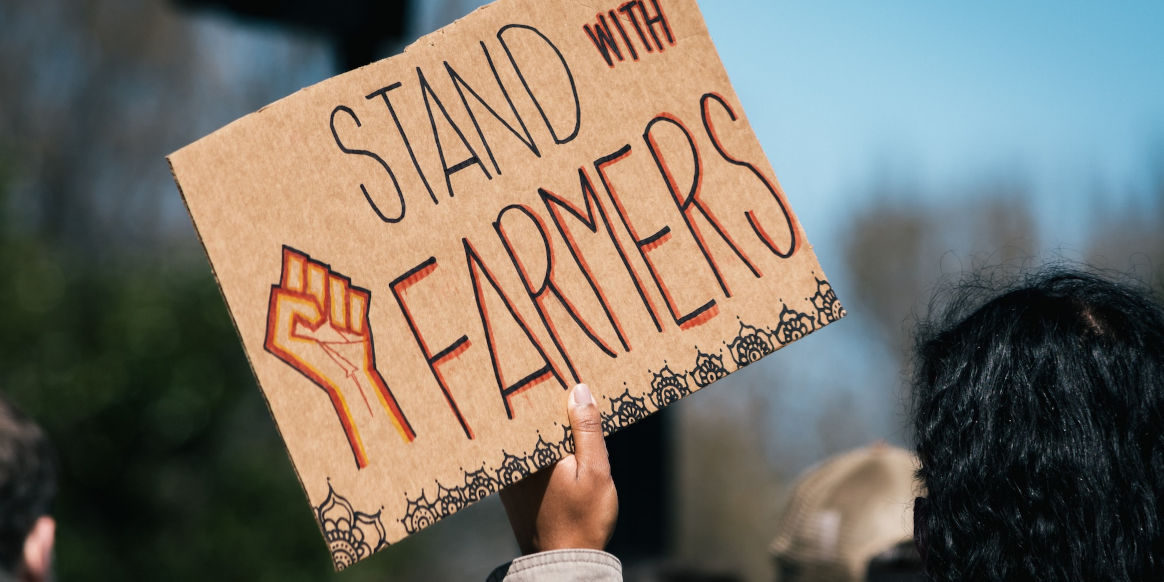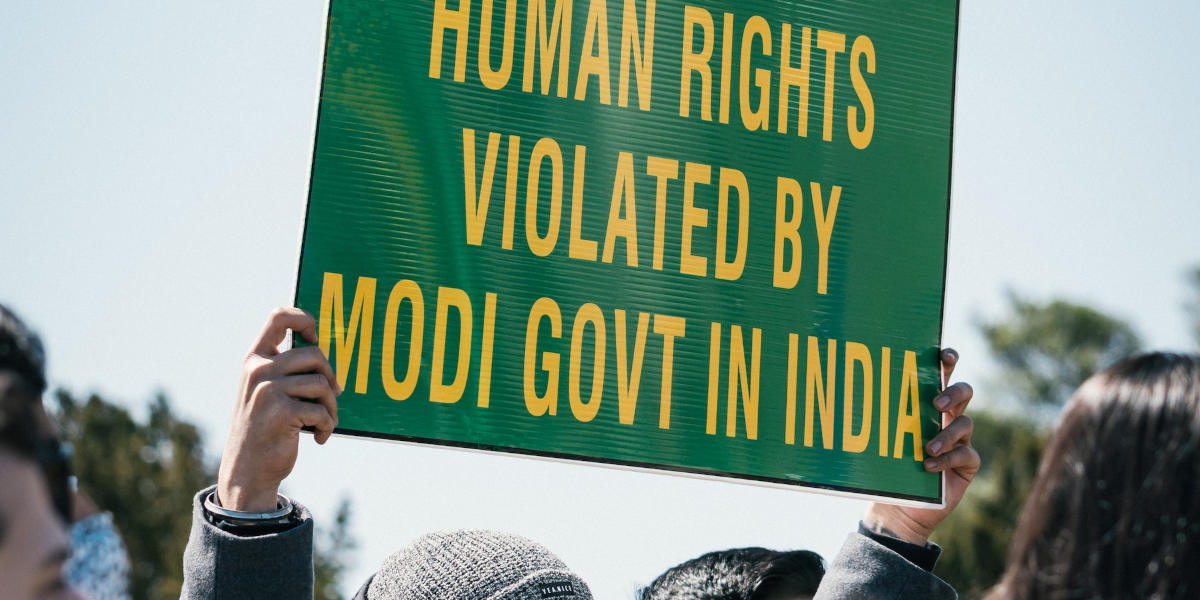On 28 February 2002, an anti-Muslim pogrom carried out by Hindu right mobs began across the state of Gujarat, Western India, following the deaths of 59 Hindu pilgrims in a fire on a train the previous day. The violence lasted three days, with an estimated death toll of over 2,000 – overwhelmingly Muslim – as well as widespread rapes of Muslim women and looting and destruction of Muslims’ homes.
On 17 January 2023, the first instalment of the two-part documentary India: The Modi Question premiered on BBC Two in the UK. The film explores the role of Narendra Modi – then Chief Minister of Gujarat, current Prime Minister of India – in allowing the pogrom to take place, encouraging the mobs and instructing the police not to intervene.
The Modi government quickly invoked emergency laws to ‘block’ the film; students received warnings not to watch clips online or on social media, and the information ministry announced that all links to footage from the film were to be banned on social media. Several attempts to screen the film – particularly by students in university campuses – were shut down through electricity being turned off or, in some cases, by police arriving to detain students.
Ironically, this only served to heighten interest in the film. Even right-wing or unquestioning students became curious as to what the government was so eager to conceal.
On 14 February 2023, BBC offices in Delhi and Mumbai were raided by tax officials. The offices were sealed and documents and phones of multiple journalists were taken. Whilst the raid was framed as an investigation into possible tax evasion, it’s difficult to see the clampdown on BBC journalism weeks after the banning of the documentary as pure coincidence.
In response to the film, the Modi government accused the BBC of exhibiting a ‘colonial mindset’ – one of the key arguments regularly used to silence activists and journalists in the Global North condemning their actions. This narrative erases the large numbers of the Indian diaspora – across the UK, US and Europe – that have been speaking out against the Hindu right long before the Modi regime came to power in 2014.
Revisited reports
The first instalment of the film is partly an exploration of Modi’s personal background and his involvement with Hindu right politics, namely the Rashtriya Swayamsevak Sangh (RSS), an organisation affiliated with Modi’s Bharatiya Janata Party (BJP) and heavily inspired by Hitler and Mussolini’s fascism.
The primary focus, however, is the 2002 Gujarat pogrom. The film examines a never-released report commissioned by the UK government in the wake of the pogrom, as well as featuring testimonies of numerous eyewitnesses and individuals affected by the violence, and interviews with a range of reporters, diplomats and politicians.
Nonetheless, the film opens with an announcement that ‘more than 30 people in India declined to take part in this series because of fears about their safety’, instantly invoking the climate of fear that has become increasingly pervasive under the Modi regime with the imprisonment and even murders of journalists such as Gauri Lankesh. One former British diplomat involved in the original fact-finding report also remains anonymous and uses an actor’s voice.
As writer Arundhati Roy notes, the film gives ample space to the voices of members and sympathisers of the BJP. Clips from interviews at the time of the pogrom – including with Modi himself – yield some disturbing quotes. At one point, in true Trump fashion, Modi interrupts the interviewer, shutting down their suggestion that the police did not intervene as ‘absolutely false propaganda’, and later, almost comically defensively, claims that ‘the state [of Gujarat] is very peaceful’.
This was an attack on the Muslim community, not a battle between two sides
Of course, the film doesn’t take his word for it. We hear how the government-commissioned report described the pogrom as akin to ‘ethnic cleansing’. Activists have consistently used this phrase to describe the inevitable end goal of the persecution of Muslims at a national level under the Modi regime, particularly the Citizenship Amendment Act and accompanying legislation.
The report also refers to the ‘Gujarat pogrom’ as opposed to ‘violence’ or ‘riots’ – the words more commonly used by the mainstream media to describe the events of those few days in 2002. This was an attack on the Muslim community, not a battle between two sides. The acknowledgement of this fact – both by the British government at the time and indirectly by the BBC today – is part of what makes the film particularly significant, especially given the long-held connections between the Conservative government and the Modi regime.

A protestor supporting the Indian farmers’ movement in 2021
CREDIT: GAYATRI MALHOTRA
A landmark affirmation
A second instalment of the documentary, released a week later, explores the current climate under the Modi regime, examining legislation such as the Citizenship Amendment Act and the revocation of Article 370 in Kashmir – and the accompanying, continual violence against Muslims.
Taken together, the two films serve to join the dots between the Gujarat genocide and the rise of fascism nationally under the Modi regime. Modi gained economic credibility in his campaign for Prime Minister from the supposed success of his ‘Gujarat model’ of economic development during his time as Chief Minister of the state (although this in fact catered far more towards corporates than people’s basic needs).
The focus on the most horrific legacy of Modi’s time in this role – the huge loss of life and the ongoing trauma faced by the Muslim women and families affected by the violence – casts a very different light on this history, and renders the current approach of the central government towards Muslim communities all the more chilling.
The film is not the only recent threat to India’s establishment, coinciding with the economic downfall of billionaire Gautam Adani – Modi’s close ally – after a major fraud scandal. However, India: The Modi Question is a clear turning point for Modi’s personal public accountability – which of course is exactly why the government made such swift moves to prevent the Indian public from seeing it, even in extract form. The government will continue to claim that Modi’s opponents are simply perpetuating colonial dynamics.
Crucially, however, the film only amplifies the facts already known by many in the Indian diaspora of Modi’s culpability in the Gujarat pogrom. It is a landmark mainstream media affirmation of the 21-year struggle for justice on the part of those affected, as well as the activists in the diaspora that continue to fight alongside them in solidarity.
India: The Modi Question is available to watch on BBC iPlayer










